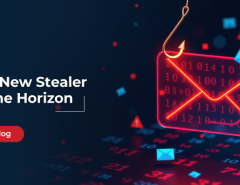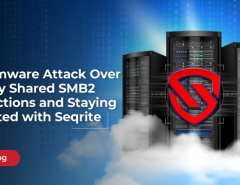Most SMEs and startups believe that cyber attackers wouldn’t be interested in them courtesy smaller frameworks and restricted financial reserves. However, based on a report released by the Verizon Data Breach Investigations, at least 61 percent of the hacked industries and enterprises function with a smaller workforce, i.e. not even 1,000 employees. While this automatically puts assumptions and apprehensions at rest, the report also raises a pertinent question regarding the safety measures in place for the SMEs and startups.
Is safety the only concern?
We all are aware of the recently drafted General Data Protection Regulation for the European Union. Under GDPR— which gets implemented in 2018— organizations violating the breach regulations will attract a fine of 2 percent and 4 percent of their global annual turnover, depending on the nature of the violation. Therefore, small businesses are at a higher risk of losing out on some hard earned revenue. More prominent organizations have larger budgets, and it becomes easier for them to tolerate penalties, when and if there is a breach. However, SMEs might start feeling the heat when GDPR eventually gets implemented, and they start encountering breaches. Therefore, it is important to address this issue right at the beginning by strengthening the data security standards associated with Small Businesses and Self-Employed firms.
Possible security solutions
In the end, it’s all about solidifying the existing security solutions for the SMEs. Hackers and cyber attackers find it easier to penetrate through the security modules of a startup as most of these companies can hardly afford premium service providers. Moreover, even the cloud-based frameworks associated with these smaller setups aren’t well-equipped when it comes to handling the confidential data sets and details of a massive user base. This inadequacy eventually makes them vulnerable and susceptible to potential security threats.
1. Strengthening the passwords
It is always advisable to start off with the basics. A strong password can mitigate at least 80 percent of the hacking-specific breaches. Being the bare minimum requirement, getting a secure password is probably the simplest solution towards better security standards.
2. Adding uniqueness to the passwords
A password is probably the most confidential entity synonymous to every online user. Adding uniqueness to the same can help address the fundamental safety issues about small and even medium-sized businesses.
3. Staying vigilant regarding phishing
The simplest form of hacking that encompasses the entire organization would be phishing. Be it clicking on a suspicious email or accidentally installing a malware after being convinced by the hackers— phishing is something that is relatable to the smaller businesses which have restricted workforce. The idea here is to look out for poor syntax and email addresses with multiple full stops or similar punctuation inconsistencies— which are the actual warning signs synonymous to a phishing attack.
4. Safeguarding and controlling information leaks
Most businesses attract hackers as they unintentionally leak out sensitive user information courtesy lack of privacy and efficient gateway solutions. One such example was the infamous iCloud leak of 2014 where hackers gained access to public posts for guessing answers to the secret questions and eventually identifying the specific accounts. Small businesses must identify these risks and implement solutions for handling these occasional leaks.
5. Concentrate on the URLs
Employees of small businesses are at the risk of communicating with pages via unencrypted servers. It is important to educate employees about the difference between “http” and “https”— with the former serving as a warning towards unsafe browsing. If the concerned organization needs to add sensitive information to servers, it must always be on websites having “https” in their URLs.
6. Updating the software
More often than not, an SME works in cohesion with customized software modules, and it becomes crucial for them to use an updated version of the same. The WannaCry ransomware attack is still fresh in our memories, and it occurred because certain companies didn’t install the necessary patches and updates which would then have made their framework secure.
Encrypted data sets can make things harder for the hackers even if they get through the systems and access the secured files. Be it the databases or company-specific hard drives— encryption is a key defensive tool that can work wonders for small business owners.
Bottom Line
Knowledge is the most important tool for combating cybersecurity threats. Needless to say, SMEs are easy targets for the hackers, but on adding innovation, pro-activity and technological expertise, the lingering threats can be kept at bay.
As an IT security partner for your business, Seqrite provides comprehensive endpoint security from advanced cyber threats. To know more, visit our website or




